![]()

Carbon Monoxide is present behind your boat too.
Do you TOW SKIERS, TUBERS, DISABLED BOATS? Are your kids sitting in a towed DINGHY?:
Tests were conducted whereby a dinghy was being towed behind a speedboat with
a 350CID engine. They mounted
test sniffers at 2 feet above the water line (people sitting in a towed boat
that is disabled) and at 5 feet above the water- that could be the height of a
Skier's nose.
Below are some of the results. Conclusions are at the bottom of the page.
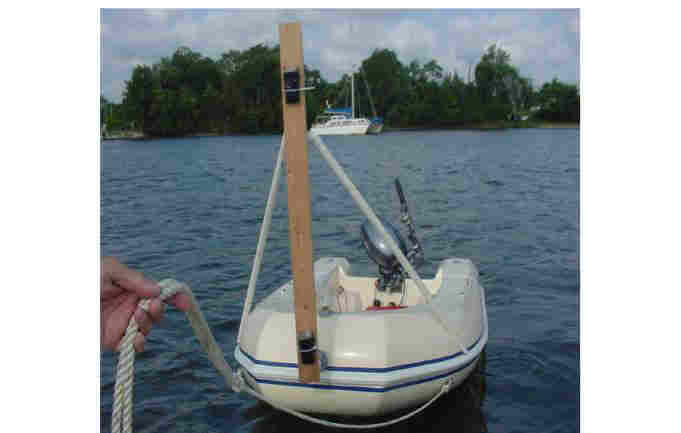
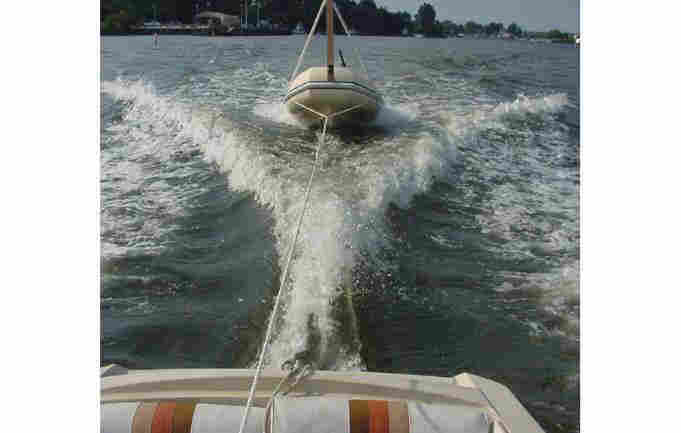
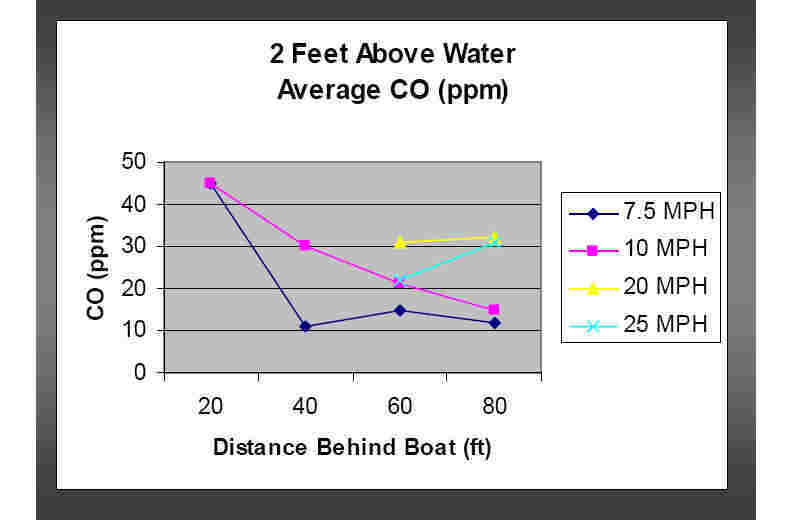
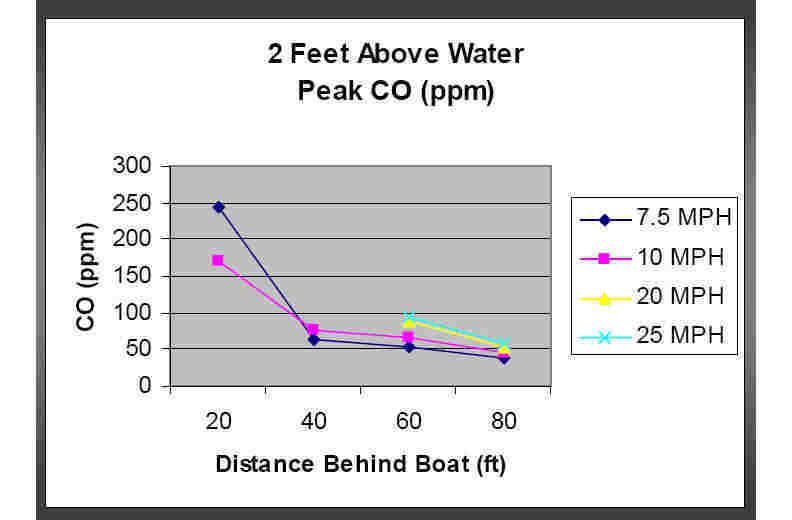
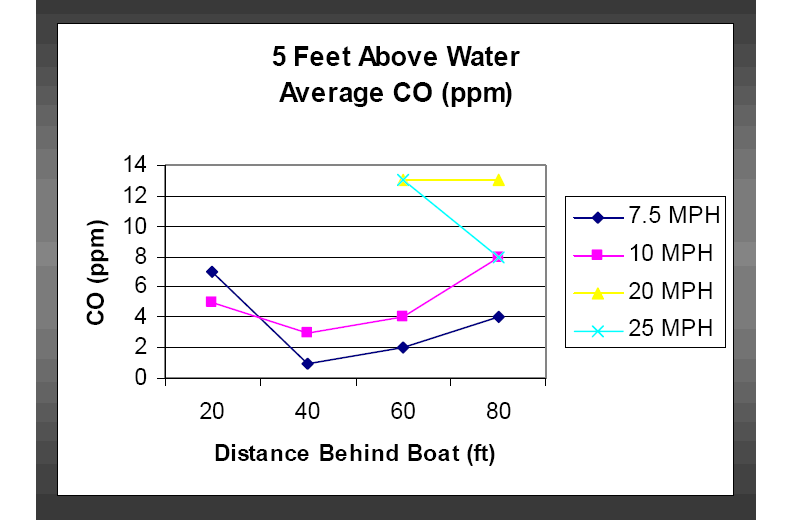
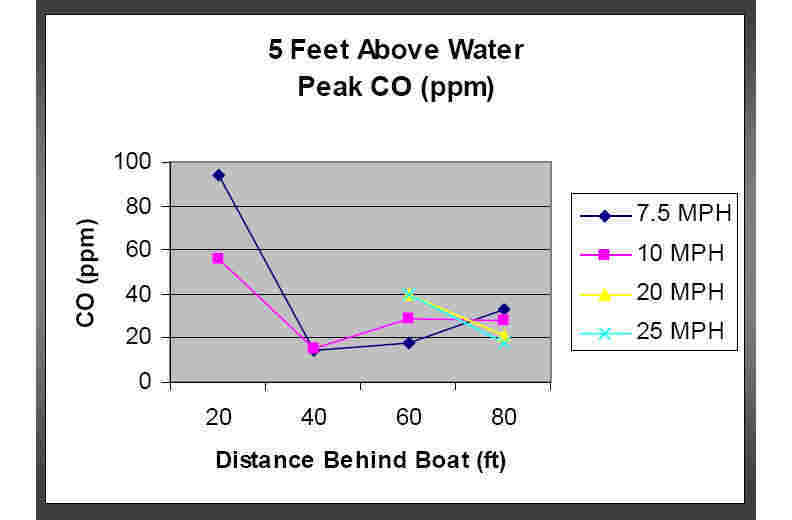
And notice this:
Measured at STERN Seat:
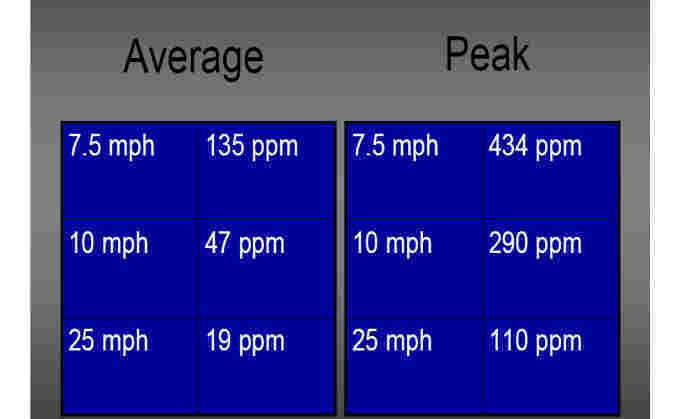
---------------------------------------------------------------------------------------------------
Results
The
highest concentrations of CO were measured above the stern seat of the ski boat
at slow boat speeds. CO levels averaged 135 ppm at 7.5 mph with peak CO levels
measuring 434 ppm. CO levels dropped as speed increased. At 25 mph, average CO
concentrations measured 19 ppm with peak readings measuring 110 ppm.
Results
of the towed tests showed that CO concentrations:
•
were highest at
the 2 foot level,
•
were highest at
20 feet behind the tow boat,
•
tended to remain
relatively consistent at distances greater than 20 feet,
•
at greater
distances, tended to increase with boat speed,
•
tended to
average below 35 ppm at distances over 20 feet, and
•
were higher in
the upwind and down wind directions.
Highest
CO readings tended to occur during acceleration and tended to last for a
relatively short duration. CO levels at 2 feet above the water were higher than
CO levels at 5 feet above the water. CO levels were highest at slow speeds,
close to the water and close behind the ski boat.
The
calmest conditions of 0 to 2 mph wind speeds occurred during the time when the
higher speed beam wind data was being collected. Note the asterisks beside that
data in Figure 1. The higher numbers suggest that in totally calm conditions,
skiers and tubers could ingest more CO than was measured during this study.
Conclusions
CO
levels in the stern seat of a ski boat are high enough to be cause for concern.
CO levels at 20 feet behind the towed boat are high enough to affect towed
tubers who tend to be young children.
CO
levels at 5 feet above the water in excess of 60 feet behind the ski boat
Reports/Studies CO Safe Distance Study
All above data and pictures are from that study.